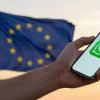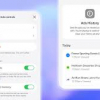CONTACT US
info@bidaiondo.com

Epic Games drops antitrust lawsuit against Samsung after reaching settlement

Epic Games, the developer of video games such as Fortnite, has announced the end of its legal dispute against Samsung. The two companies have reached a settlement, closing the antitrust case initiated in September 2024, which accused Samsung of collaborating with Google to block competing app stores on its smartphones. What the Epic Games lawsuit exposed On September 30, 2024, Epic Games filed a lawsuit against Google and Samsung in the United States District Court for the Northern District of California. The document accused Samsung of using its "Auto Blocker" feature, installed by default, to prevent the download of apps from rival app stores. Samsung presents "Auto Blocker" as a security measure intended to block apps from "unknown sources." However, Epic Games claimed in its lawsuit that Samsung and Google used it to block apps from any store other than the Play Store or the Galaxy Store, without any process for other stores to be "authorized." “Auto Blocker is the latest in a long series of agreements in which Google and Samsung have agreed not to compete to protect Google’s monopolistic power. Auto Blocker cements the Google Play Store as the only viable way to get apps on Samsung devices, preventing all other stores from competing on a level playing field,” Epic Games said in a statement. Epic Games identified “Auto Blocker” as a Google ploy stemming from a previous lawsuit. Now that we understand the main thrust of Epic Games’ lawsuit, we need to take another leap back in time to understand the full picture. In 2020, the video game developer sued Google, accusing it of maintaining an illegal monopoly on the distribution of Android apps through the Play Store. In 2023, Epic Games won the case, and the court agreed to impose remedies to open the market to competition. Following this, the video game company launched its Epic Games Store in August 2024, seeking to gain a foothold in the app store market. However, that year, Samsung changed the "Auto Blocker" setting from an optional feature to being installed by default on its mobile devices. Epic viewed this as an attempt by Samsung and Google to coordinate to prevent effective competition in app distribution, potentially negating the expected remedies from the 2023 ruling against Google. "The intended effect of Auto Blocker is clear: it would nullify the Court's injunctions against Google and frustrate any attempt to open the Android app distribution market to competition," the 2024 lawsuit explains. An undisclosed settlement The tweet from Tim Sweeney, founder and CEO of Epic Games, is the only information revealed about the settlement reached by the developer and Samsung. At this time, no further details have been provided on what steps Samsung would have taken to force Epic Games to withdraw its lawsuit. Among the possibilities would be returning "Auto Blocker" to an optional feature or modifying it to allow the installation of apps from stores other than the Play Store or the Galaxy Store. This would restore market balance and allow for open competition. It's also worth noting that Sweeney's statement came two days before Samsung's Galaxy Unpacked event, which begins on July 9. So we can't help but wonder if we'll learn any more information about it during the event.
Last news
Llega Ecommerce Moment Barcelona 2026: casos reales sobre innovación, retail media, liderazgo y nuevos hábitos de consumo

La Comisión Europea exige medidas urgentes a Meta para que los asistentes externos vuelvan a Whatsapp

online trading systems.
 We show you the best way to market products and services online, through a professional service of installation, management and maintenance of your virtual store
We show you the best way to market products and services online, through a professional service of installation, management and maintenance of your virtual store
We program to suit you
 We help you achieve operational excellence in all your business processes, whether they are production, logistics, service or office processes. In addition, we assure you to maintain continuous improvement in your management.
We help you achieve operational excellence in all your business processes, whether they are production, logistics, service or office processes. In addition, we assure you to maintain continuous improvement in your management.
Bidaiondo Articles
We take a look at how ChatGPT's new advertising works, which is already live.

ChatGPT has finally launched advertising on its platform. Relatively quietly (considering the importance of this development for the future of its business), Sam Altman's company has already rolled out ads on ChatGPT, although for now they will be limited to the United States. This test launch is intended for adult users logged into the Free and Go plans. For the time being, the Plus, Pro, Business, Enterprise, and Education plans will not se...
The two sides of Moltbook, the social network exclusively for AI agents: entertainment and risks

A new social network has just been launched, and it's nothing like you'd expect. Moltbook is a platform similar to Reddit, but its users are none other than AI agents that debate, share, and vote, while humans are welcomed as mere observers. What is Moltbook? Last week we told you about OpenClaw, a proactive AI agent capable of taking control of your computer to help you perform tasks, which has become the talk of the town. Well, it seems...

ABOUT US
FILES

Welcome to Bidaiondo, dear user
BIDAIONDO SL, as the party responsible for the website www.bidaiondo.com, uses its own operating cookies and those of third parties of an analytical nature to allow the use of the website, analyze our services and show you information related to your preferences based on a profile drawn up from of your browsing habits (for example: pages visited). Please bear in mind that, if you do not activate some types of cookies, such as operational and analytical cookies, your experience of using this website may be affected. You can obtain more information and configure your preferences in the CONFIGURE option that appears below, you can reject cookies in the REJECT AND CLOSE option or accept all cookies and continue browsing in the ACCEPT AND CLOSE option.
So do you want to know more?
Data privacy seems important to you, and it is to us too. We store cookie data for 13 months. If you want to know more, you can visit our pages Privacy Policy y Cookies policy. Do you know what cookies are? Cookies are files that are used by virtually all websites. When browsing our page, they are installed in your browser or device to ensure that the website works correctly and store information about your visit. The data provided by cookies treat the user anonymously and in no case do they store personal information.
The data collected by the cookies we use are:
- Addresses IP
- References of visited pages
- References of downloaded files
- The website itself www.bidaiondo.com
- https://www.moz.com
- https://secure/europeanssl.eu

 Spanish
Spanish













